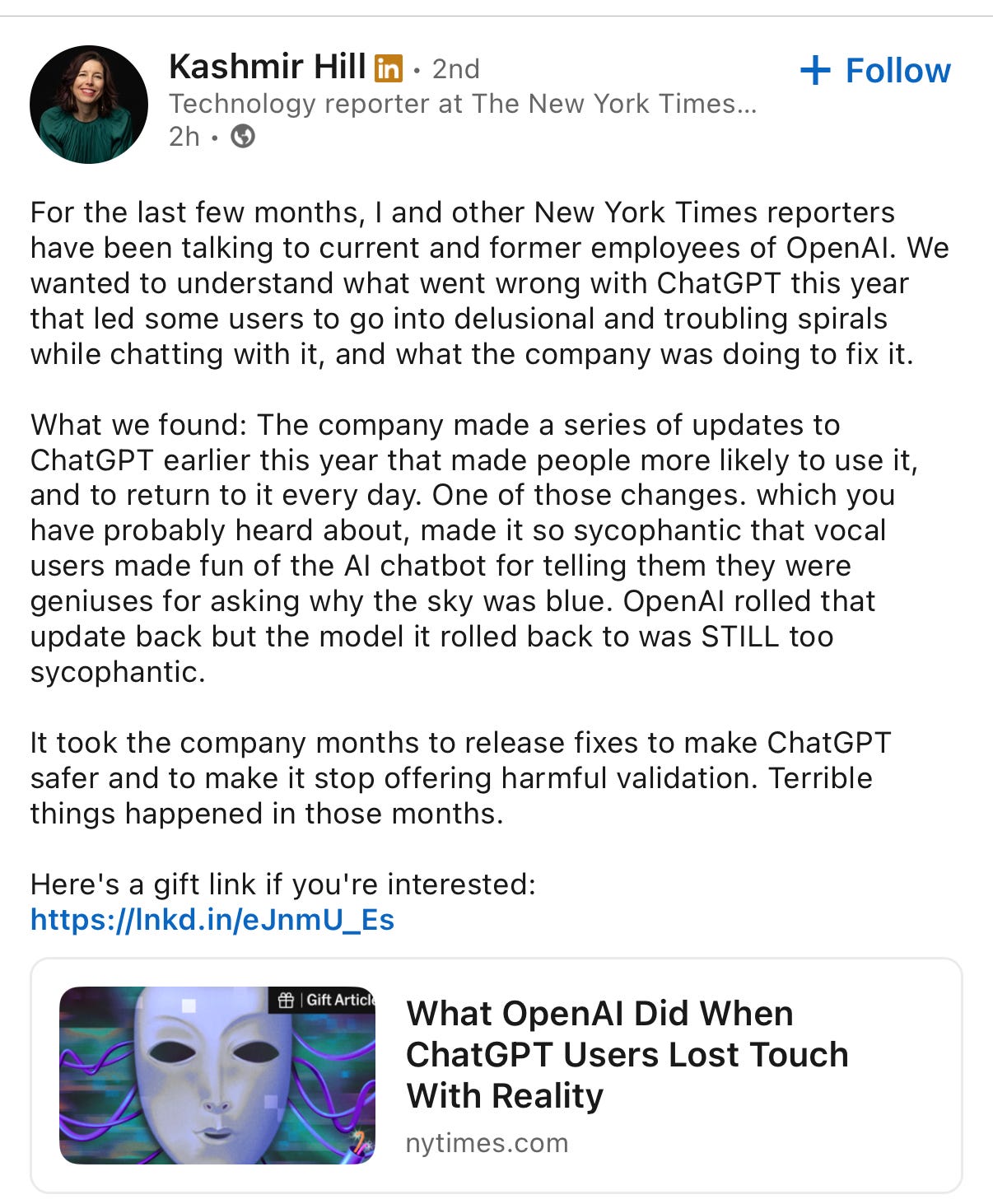ChatGPT and delusions: an important new inside look at OpenAI
Pointer to an article you should read
Not sure a hugely topical and well-reported piece in The New York Times needs any amplification from me but….this just in … “the Times has uncovered nearly 50 cases of people having mental health crises during conversations with ChatGPT. Nine were hospitalized; three died”
You should read their report about what went on the inside, at OpenAI.
A big part of the culprit? Maximizing metrics for user engagement.
Lots of internal warnings were ignored.
Here’s Kashmir Hill’s own summary, followed by a gift link to the essay. It’s long but with lots of new insights into how OpenAI rolls — and by extension insights what that might mean for the future of AI safety.
You can read the essay here.


The current trajectory of major AI companies offers a cautionary tale against the core tenets of market fundamentalist ideology. Market fundamentalism posits that the unconstrained free market, guided by rational self-interest, naturally leads to the most efficient and beneficial outcomes for society. Yet, in the AI industry, we see the opposite: a monumental market failure driven by the pursuit of pure, short-term profit. Instead of the "invisible hand" guiding billions in investment toward world-changing public goods such as cures for diseases or solutions to climate change or myriad other major problems facing our technological adolescence, it directs that capital straight into building digital drug dealers and surveillance systems. The immense, proprietary cost of training frontier models creates a natural oligopoly, concentrating power and limiting innovation to the whims of a few wealthy shareholders focused only on recouping sunk costs with addictive consumer products ("AI friends," AI porn). The resulting societal costs, including worsened information environments, mass unemployment potential, and systemic surveillance are negative externalities that the public is forced to bear, while the companies reap the rewards. Isn’t Musk about to become the world’s first trillionaire? This scenario isn't an example of a healthy market; it's a testament to how, on the cusp of a revolutionary technology, the logic of laissez-faire economics inevitably fails to deliver the general welfare, prioritizing profit extraction over genuine human progress. The only rational response to an epochal market failure like this is robust, proactive government intervention to mandate that this public-good technology serves citizens, not just consumers.
Thanks Gary would most probably not have found this otherwise!